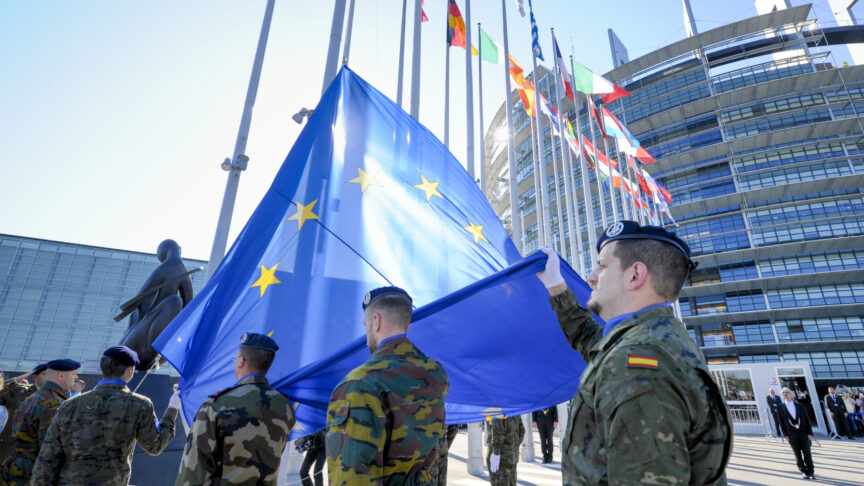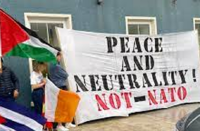Before the war, the EU had never used common funds to reimburse member-states for the delivery of weapons to a third country. This precedent was established in February 2022 with €500 million for arms through the European Peace Facility (EPF), an off-budget instrument financed by member-states’ contributions, established in March 2021 with a €5 billion ceiling. (The ceiling was increased to €2 billion in December 2022 and to €3½ billion in June 2023.)
The initial €500 million was topped up by €500 million in March, April, May, July and October and in January 2023, and €1 billion in April 2023. This August, Josep Borrell proposed a Ukraine Assistance Fund, a €20 billion military fund of €5 billion per year until 2027. It will operate through the EPF and send weapons to Ukraine even if peace is achieved.
The European Defence Industry Reinforcement through Common Procurement Act (EDIRPA) and the Act in Support of Ammunition Production (ASAP) were just passed. The former is a €300 million weapons group purchasing incentive fund, and the latter is a €500 million fund for increasing the production of munitions and missiles for the war.
The Commission is planning more handouts for the arms industry; a “European Defence Production Act” to boost the bloc’s defence industrial base is now in the works.¹ For Europe’s merchants of death, the war is the gift that keeps on giving.
At present, “Team Europe” is on the hook for €72 billion in support for Ukraine. €15 billion is military assistance measures, the remainder is principally assistance loans (€25.2 billion) and protection for displaced Ukrainians (€17 billion).² In June the Commission proposed a €50 billion “Ukraine Facility” for the years 2024–27. In just five years the EU will have prioritised €122 billion (€100 billion from the EU budget, €22 billion from voluntary contributions) for a war in a non-EU country.
Fifteen years ago, rich states pledged to deliver $100 billion per year to help poorer countries combat global warming; and they still haven’t.³ This is when avoiding the worst impacts of global warming could require $4.3 trillion a year by 2030.⁴
This September the NATO figurehead Jens Stoltenberg told the EU Parliament foreign affairs committee that “President Putin in the autumn of 2021 sent a draft treaty that they wanted NATO to sign, to promise no more NATO enlargement. That was what he sent us and was a precondition for not invade [sic] Ukraine. Of course, we didn’t sign that … so he went to war to prevent NATO, more NATO, close to his borders.”⁵ NATO says it forced Putin’s hand in Ukraine, and the hawks in Brussels, like Michael Gahler of the EPP, says there would be no EU Defence Union without Putin.⁶
The circle is complete. Ukraine is destroyed, hundreds of thousands of men, women and children are dead, and the counter-offensive is failing. Ukraine is losing. Yet for NATO it’s mission accomplished. Stoltenberg is celebrating a record 8 per cent increase in arms spending by NATO members this year. NATO has expanded and consolidated, is flush with weapons contracts, and full of purpose. The EU has jettisoned its talk of strategic autonomy and bunkered down into the Atlanticist camp, sacrificing its economy and the well-being of its people for a war NATO admits it instigated.
The climate crisis necessitates international co-operation like never before. Yet the United States has used the war to revive Cold War configurations. The table is being set for confrontation between NATO and China that will foreclose any hope of stopping catastrophic climate disaster and the destruction of life on earth.
The task ahead is to stop NATO from closing off the future.
- Aurélie Pugnet, “European Commission mulls new European Defence Act before end of year,” Euractiv, 4 September 2023 (https://tinyurl.com/44by48wc).
- European Parliament, “Financing Ukraine’s Recovery,” June 2023 (https://tinyurl.com/ywa8b9v8).
- Kate Abnett, “Rich countries failed to meet their climate funding goal,” Reuters, 29 July 2022 (https://tinyurl.com/29nbzs35).
- United Nations, Climate, “Finance and Justice” (https://tinyurl.com/4w76ps6m).
- European Parliament, Committee on Foreign Affairs (https://tinyurl.com/mryrajdp).
- Michael Gahler, European Parliament, 11 September 2023 (https://tinyurl.com/4r8rd8rt).






